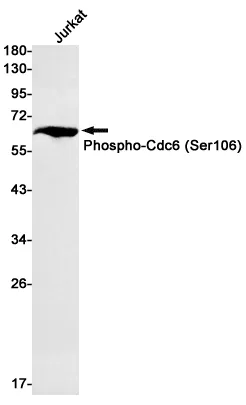Summary
Performance
Immunogen
Application
Background
Belongs to the peptidase C14A family. Involved in the activation cascade of caspases responsible for apoptosis execution. Cleaves and activates sterol regulatory element binding proteins (SREBPs). Proteolytically cleaves poly(ADP-ribose) polymerase (PARP) at a '216-Asp--Gly-217' bond. Overexpression promotes programmed cell death. Involved in the activation cascade of caspases responsible for apoptosis execution (PubMed:8521391, PubMed:8576161, PubMed:8567622, PubMed:9070923, PubMed:11701129). Cleaves and activates sterol regulatory element binding proteins (SREBPs) (PubMed:8521391, PubMed:8576161, PubMed:8567622, PubMed:9070923). Proteolytically cleaves poly(ADP-ribose) polymerase (PARP) at a '216-Asp-|-Gly-217' bond. Overexpression promotes programmed cell death (PubMed:8521391, PubMed:8576161, PubMed:8567622, PubMed:9070923). Cleaves phospholipid scramblase proteins XKR4, XKR8 and XKR9 (By similarity).
Research Area
Cell Biology






